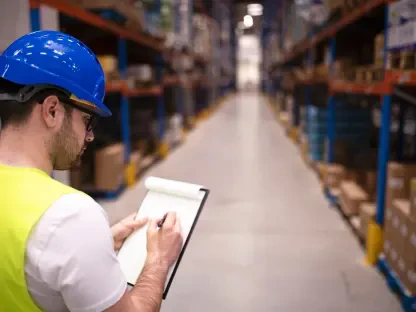DHL Supply Chain’s latest venture into the realm of autonomous trucking is a beacon of innovation poised to reshape the logistics landscape. By partnering with Volvo Autonomous Solutions, DHL aims to enhance freight capacity and optimize supply chain efficiencies through the deployment of autonomous trucks on key Texas routes. The initiative involves the use of Volvo VNL Autonomous trucks equipped with the advanced Aurora Driver self-driving system, setting a precedent in the logistics industry. This strategic move positions DHL as a pioneer in integrating digital transformation within freight management, addressing some of the pressing challenges faced by the sector such as driver shortages, increased freight demand, and extended transit times.
Texas, with its significant role in U.S. freight movement, has been chosen deliberately by DHL due to the strategic advantages it offers. The state’s extensive network of warehouses and infrastructure makes it an ideal location for such an innovative deployment. With two major routes, Dallas to Houston and Fort Worth to El Paso, being the initial focus, DHL is targeting regions that are pivotal for retail freight movement. Senior Director Jason Gillespie emphasizes the potential of this technology to revolutionize the logistics industry by increasing efficiency and addressing the challenge of driver shortages. As the logistics giant embarks on this ambitious venture, it sets a high standard for competitors and partners, looking to digital advancements as the roadmap for future growth.
Optimizing Freight Movement with Autonomous Technology
DHL is not the only company eyeing opportunities in Texas for autonomous trucking. Giants like Ryder System and Kodak Robots have also shown interest and are actively investing in similar technologies within the same region. This consensus underscores Texas as a critical hub for advancing autonomous transportation. The focus on Texas is not just about the strategic location but also about the extensive impact it can have on serving multiple customers effectively. By leveraging autonomous solutions, these companies aim to tackle fundamental issues within the industry, thereby driving a more productive and sustainable future for logistics and supply chain management.
This budding trend in logistics underscores a broader industry inclination towards automation. The integration of autonomous trucks promises to enhance safety, reduce human error, and ensure sustainability in operations. However, this transition is not without its challenges. Questions remain about the scalability and reliability of such technologies, especially concerning insurance. Issues of risk assessment, determining liability in the event of accidents, and the potential changes in premiums are significant considerations that need addressing as autonomous trucking becomes more prominent. Despite these hurdles, investing in autonomous solutions presents a unique opportunity to transform logistics, driving the evolution of the industry forward.
Addressing Industry Challenges Through Digital Transformation
Autonomous trucking is seen as a key solution to overcoming the logistics industry’s long-standing challenges. Particularly, the chronic driver shortage has plagued the industry for years, with companies struggling to find enough qualified drivers to meet the growing demand for freight movement. Autonomous trucks offer a promising avenue to mitigate this issue by reducing the dependency on human drivers and optimizing route efficiency. This could potentially result in shorter transit times, more reliable delivery schedules, and a significant reduction in operational costs. Senior Director Jason Gillespie highlights that this technology could meet the increased freight demand more efficiently, ensuring a seamless supply chain.
Additionally, autonomous trucks are set to improve sustainability within the logistics sector. By employing more precise driving algorithms and energy-efficient maneuvers, these vehicles can significantly reduce fuel consumption and emissions, aligning with global sustainability goals. For DHL, the deployment of these trucks signifies a commitment to innovation and environmental stewardship, reflecting a forward-thinking approach to logistics management. The company’s strategic initiative aims not only to address immediate industry challenges but also to pave the way for long-term advancements in freight transportation.
Pioneering a New Era of Logistics
DHL Supply Chain’s foray into autonomous trucking signifies a major leap in logistics innovation. By teaming up with Volvo Autonomous Solutions, DHL aims to boost freight capacity and streamline supply chain processes using autonomous trucks on key Texas routes. These Volvo VNL trucks, featuring the advanced Aurora Driver self-driving system, mark a pivotal advancement in the industry. This partnership positions DHL as an early adopter of digital transformation in freight management, tackling issues such as driver shortages, rising freight demands, and longer transit times.
Texas is a strategic choice for this initiative due to its crucial role in U.S. freight movement and its robust network of warehouses and infrastructure. Focusing initially on routes from Dallas to Houston and Fort Worth to El Paso, DHL targets key areas for retail freight. Jason Gillespie, Senior Director, highlights this technology’s potential to revolutionize logistics by enhancing efficiency and addressing driver shortages. As DHL embarks on this innovative journey, it sets a high benchmark for competitors and partners by embracing digital advancements for future growth.









